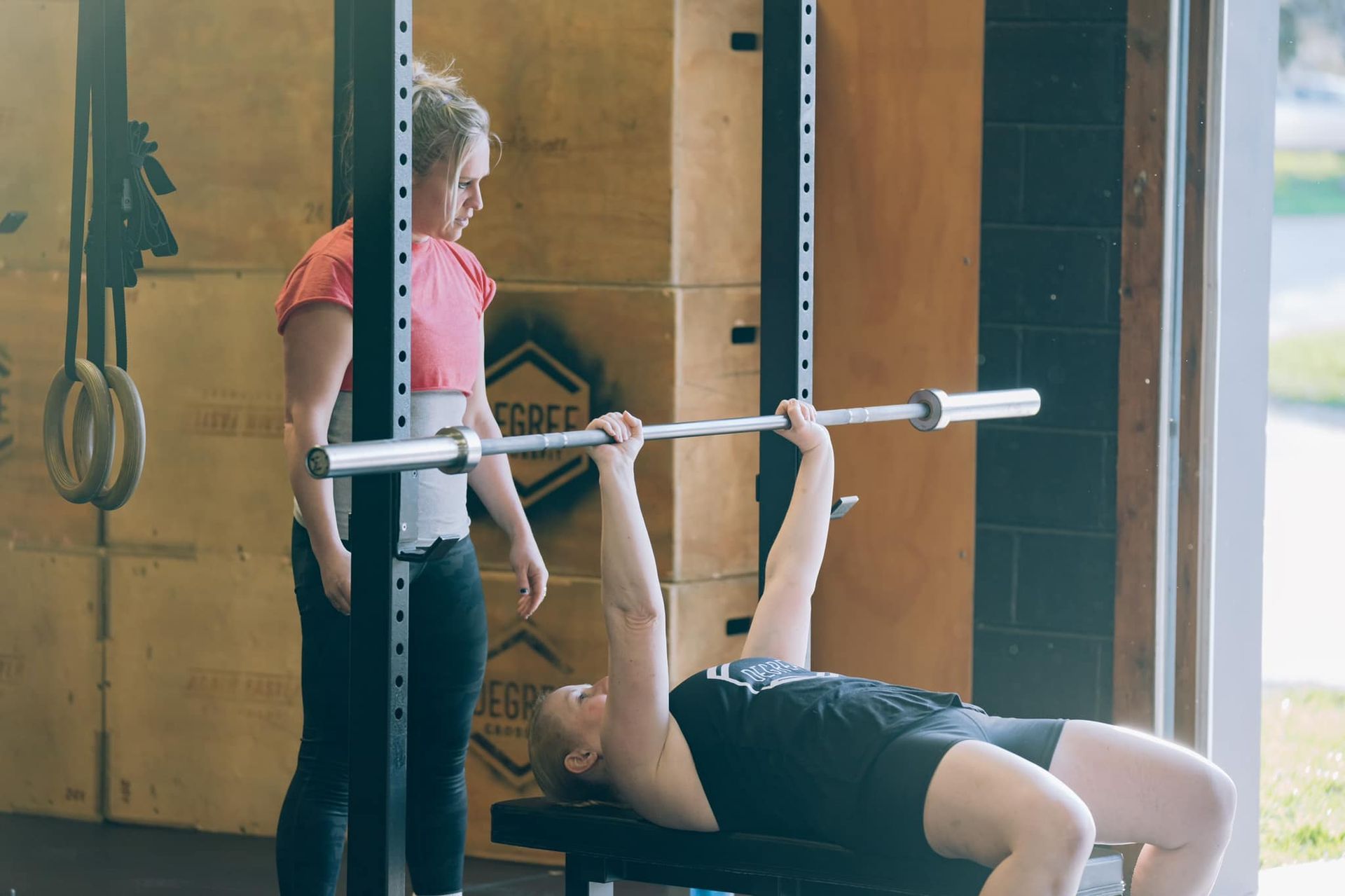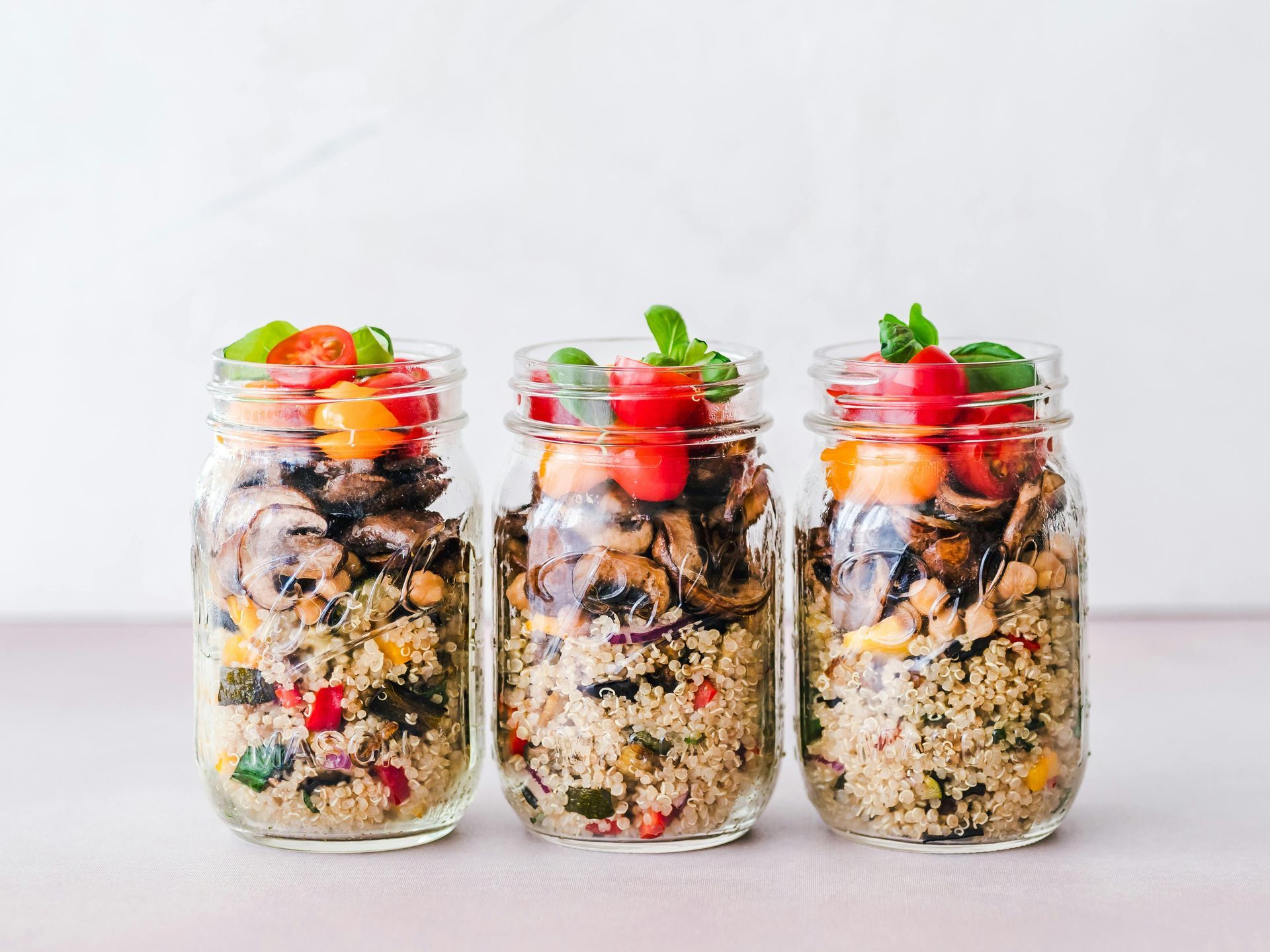How Important is Your Body Weight?
Written By: Coach Kelly
Coach Kelly here -
I’m here to talk today about what fitness really is, and what really matters.
It’s not how much you weigh;
It’s not your clothing size;
It’s not have a 400lb deadlift;
It’s not having 6 pack abs…
Before we dive into it, I want to share my personal experience with fitness and how I’ve made it a non-negotiable. Something I’ve carried with me through highschool, college, working long hours as a home-care PSW, joining a gym (Degree!), managing the gym and then running it.
In all those years this included job changes, moving, having two babies close in age, and all the ups and downs that life throws at us in between.
I got into fitness because my sweet Mother was doing Pilates videos (the VHS kind) at home. It looked fun, I liked hanging out with my Mom so I gave it a try.
That was the catalyst.
I felt empowered; I felt strong.
I was never athletic in high school, I didn’t play sports until grade 11 when a friend of mine introduced me to cheerleading. That became a big part of my life.
Through this as well, I tried allll of the things to lose weight, get smaller, find my 6 pack… you name it.
I tried the low fat everything fad;
I tried the ice cold water with lemon first thing in the morning;
I tried the Raspberry Ketones;
I tried not eating after 8pm;
I tried cheat days etc...
And guess what?
Nothing changes. Literally nothing.
I was spending money on things that didn’t work; I was letting the magazine covers and the celebrities tell me that to be fit I needed to be smaller, I needed to weigh less.
Before we get into what actually worked, let’s talk about what doesn’t and get Myth busting
Myth 1
Your weight is the most important factor in your overall health and fitness.
WRONG!
Your bodyweight is simply everything that you are; your bones, muscles, organs, blood, hair, eyeballs, if you’ve gone to the bathroom or not, the food you’ve eaten, the water you’ve drank.
You’ve probably heard of BMI (Body Mass Index). This is troublesome as it only measures your height compared to your weight.
The shorter you are and the more you weigh, the higher your BMI, thus, we are labeled overweight when we really might not be.
The taller you are, and the lower your weight, your BMI is lower, thus, we are labeled as healthy, when we really might not be.
The markers that we want to look at (unless there is a medical reason to look otherwise) are things like muscle mass, body fat percentage and other non-scale markers like how stressed you feel (or not), how are you sleeping at night, are you happy?
Our genetics play a massive role in our body type; understanding this can also help us work with our body instead of against it.
There is a point at which your body will be at a weight it is likely to stick around unless drastic changes are made. For most of us the changes needed are simply unrealistic and.
There are many important factors to your overall health & fitness, but bodyweight usually is not the one we need to focus on.
Book your Intro Meeting by CLICKING HERE, or reply directly to this email if you're feeling overwhelmed, stuck or frustrated in your fitness journey. We can help!



